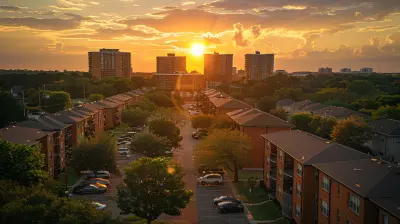A Buyer’s Guide to Farm and Ranch Real Estate
4 September 2025
So, you’ve decided to trade the hustle and bustle of city life for rolling pastures and open skies? Whether you're dreaming of a serene farmstead or a fully operational ranch, buying rural property is no small feat. Unlike picking out a suburban home, farm and ranch real estate comes with a unique set of challenges—and rewards. But don’t worry, that’s where this guide comes in!
Buckle up, grab your cowboy boots (or gardening gloves), and let’s navigate the wild, wonderful world of farm and ranch real estate together. 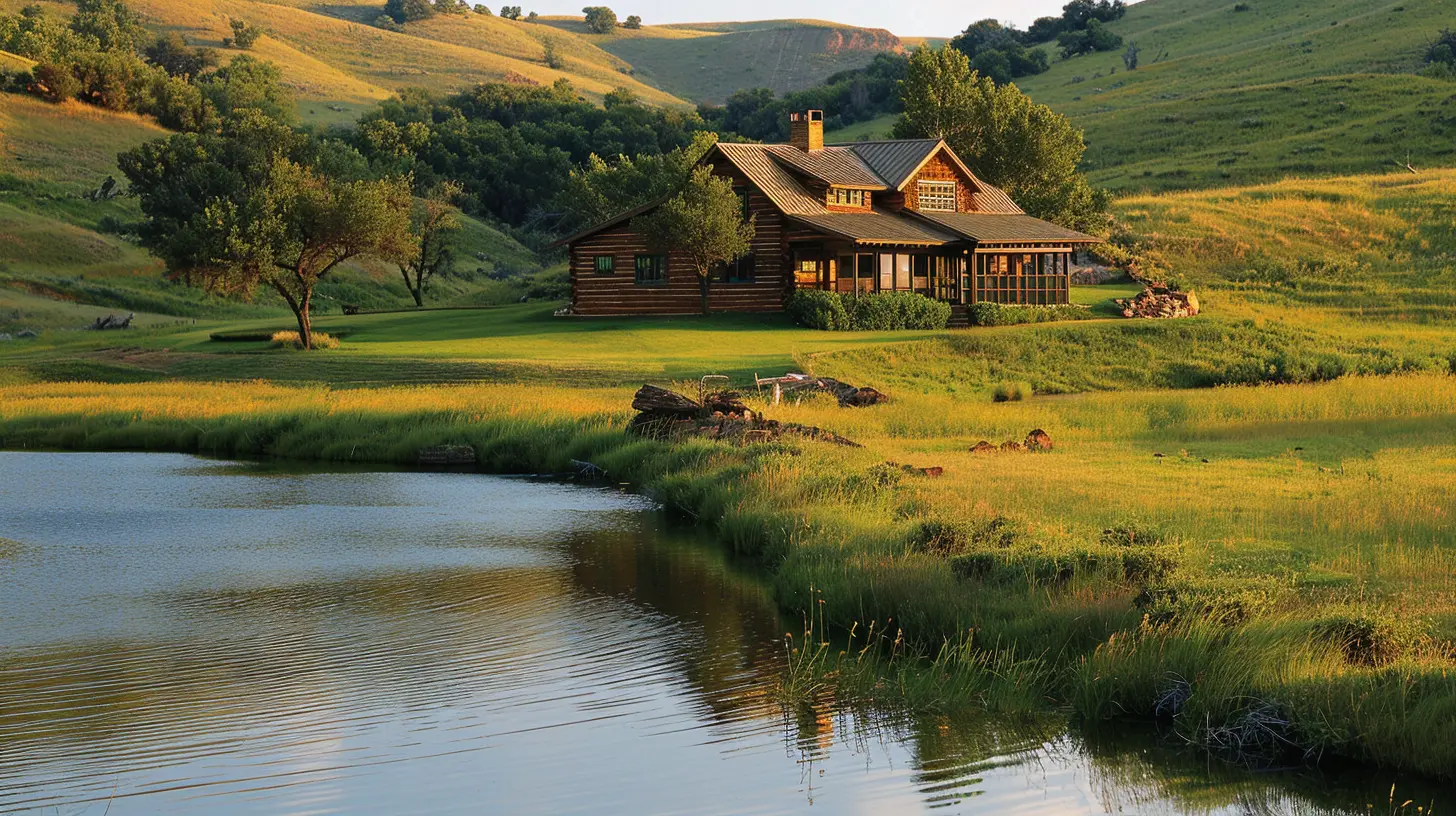
Why Buy a Farm or Ranch?
Before we jump into the nitty-gritty, let’s talk about the why. What’s pulling you towards farm or ranch life?- Living the Dream – Maybe you’ve always fantasized about waking up to the sound of roosters instead of alarm clocks.
- A Sustainable Lifestyle – Growing your own food, raising animals, and living off the land is as rewarding as it gets.
- Business Opportunities – Whether it's cattle ranching, organic farming, or a horseback riding retreat, rural properties come with income potential.
- Room to Breathe – Say goodbye to traffic jams and nosy neighbors. Out here, it’s just you, your land, and maybe a few cows.
Understanding your goals is the first step in finding the perfect farm or ranch property. 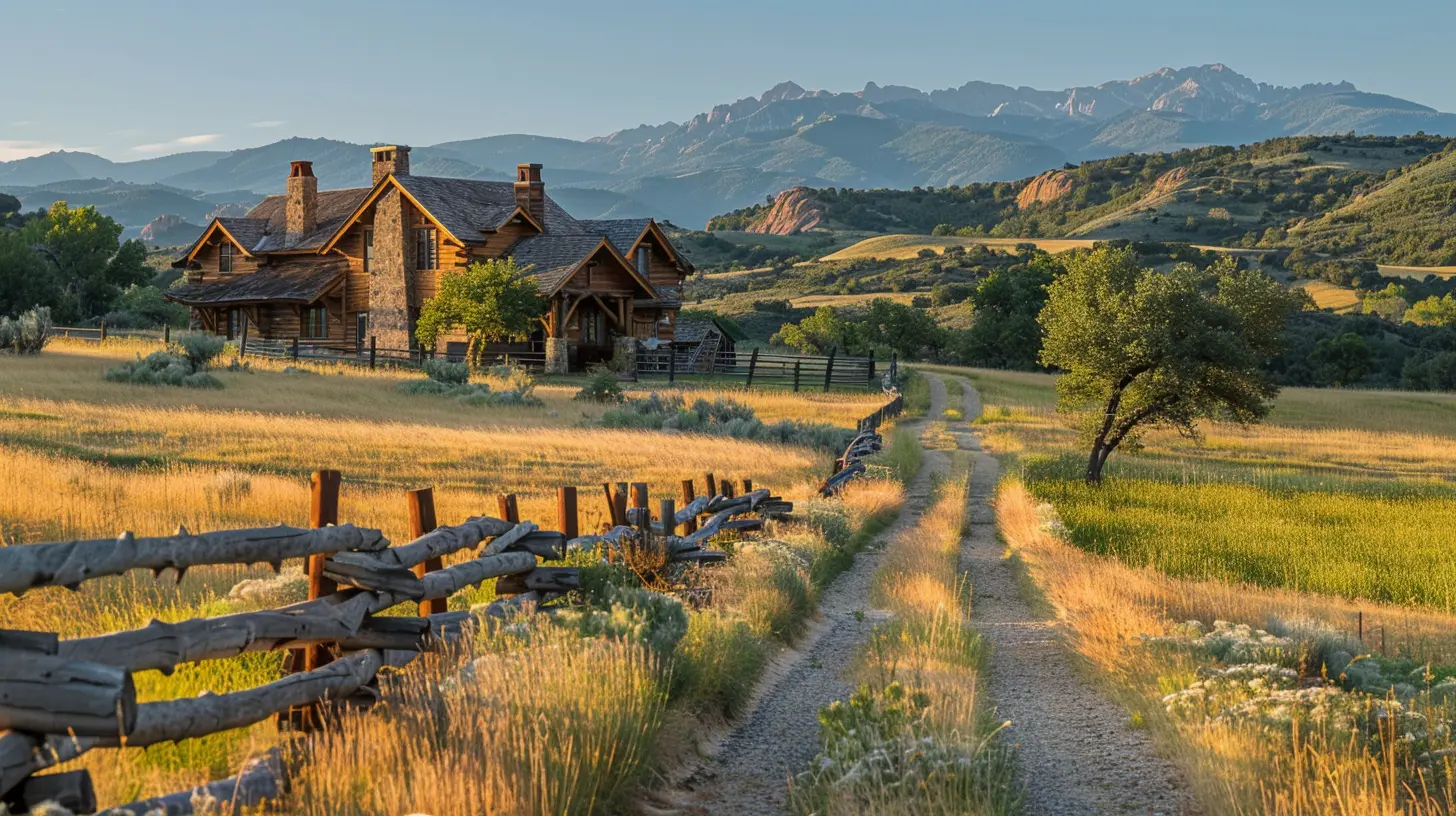
Types of Farm and Ranch Properties
Not all rural properties are created equal. The type of property you choose should match your lifestyle, investment strategy, and level of experience.1. Hobby Farms
Perfect for weekend farmers or self-sufficiency enthusiasts. Hobby farms are smaller, typically ranging from a few acres to 50 acres, and allow you to grow crops, raise chickens, or keep a couple of goats—without the pressures of full-scale farming.2. Working Farms
If you're looking to produce food commercially, a working farm is for you. These properties are designed for large-scale crop production, dairy farming, or livestock raising.3. Ranches
Ah, the cowboy lifestyle! Ranches are primarily for livestock—typically cattle or horses. Unlike farms, ranches require vast amounts of land for grazing and often include water resources, barns, and fencing.4. Equestrian Properties
Love horses? Then an equestrian property might be your dream come true. These properties include stables, riding trails, and training facilities, making them ideal for horse breeding, boarding, or equestrian sports.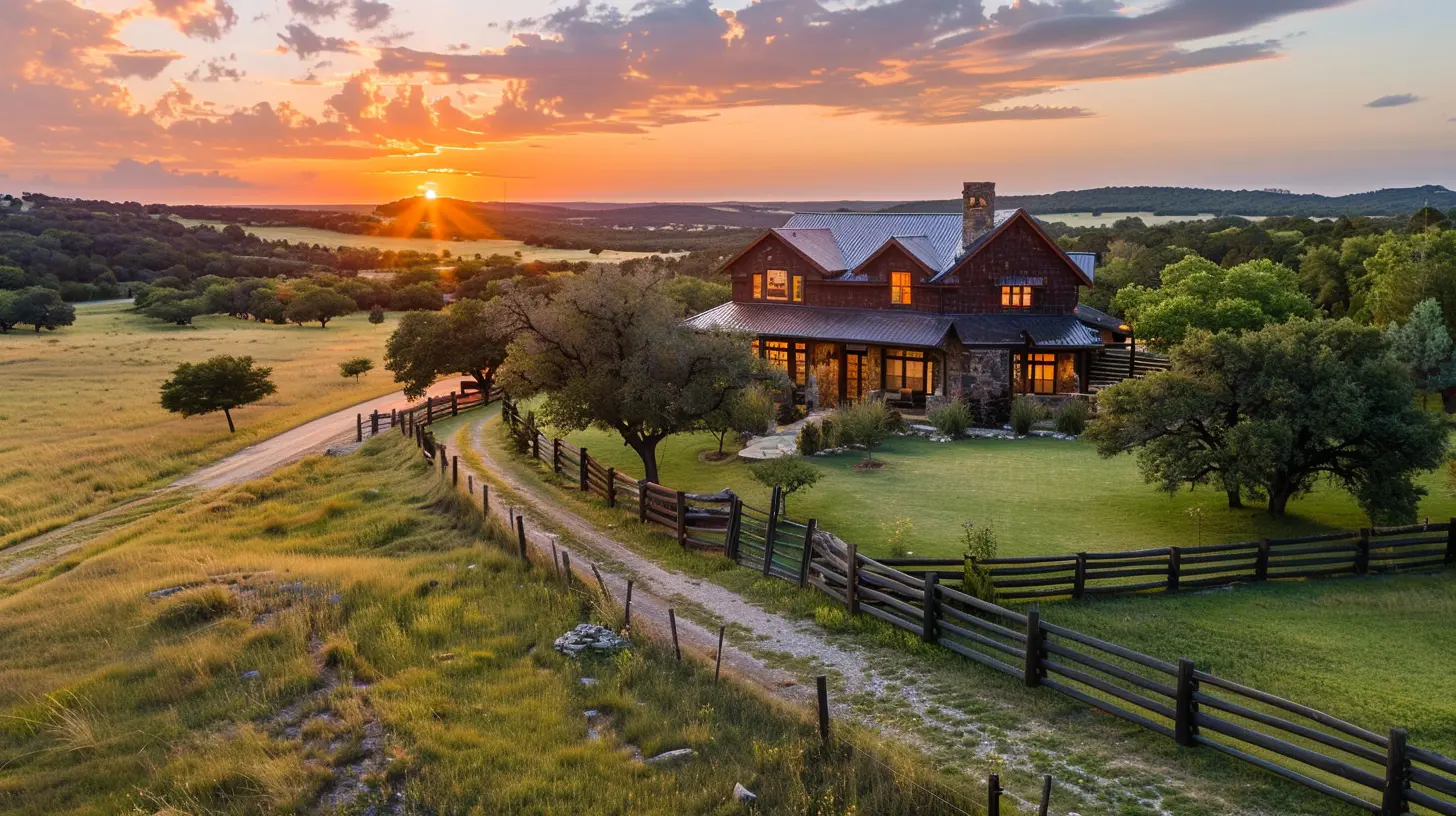
Important Factors to Consider
Okay, you’re ready to saddle up and buy your piece of paradise. But before that, let’s go over some crucial factors to consider.1. Location, Location... And Location Again!
The location of your farm or ranch can make or break its success. Here’s what to think about:- Climate – Different crops and livestock thrive in different weather conditions.
- Soil Quality – If you want to grow crops, rich, fertile soil is a must.
- Water Availability – No water? No farm. Ensure there’s a reliable water source for irrigation and animals.
- Accessibility – Remote is nice—until you need supplies or emergency services.
2. Size and Layout of the Land
How much land do you need? That depends on your plans. A small-scale organic farm might need only a few acres, while a cattle ranch could require hundreds (even thousands).Topography also matters. Flat land is great for farming, while hilly or varied terrain is better suited for livestock.
3. Zoning and Land Use Regulations
Just because land looks perfect doesn’t mean you can use it how you want. Local zoning laws dictate building restrictions, commercial use, and even livestock limits.Tip: Check with the county before signing on the dotted line. The last thing you want is to buy land you can’t use the way you intended.
4. Utilities and Infrastructure
Farms and ranches aren’t always plug-and-play. Some properties lack basic utilities like electricity, water wells, or sewage systems. Also, consider:- Fencing – Essential for livestock management.
- Barns and Outbuildings – Necessary for storage, animals, and equipment.
- Road Access – Can trucks and farm equipment easily reach your property?
5. Financing Rural Property
Here's the thing—buying a farm or ranch isn’t like getting a traditional home loan. Many standard lenders shy away from rural properties due to their unique risks.Instead, look into:
- Farm Credit Services – Special lenders cater to agricultural properties.
- USDA Loans – If eligible, these can offer favorable terms.
- Owner Financing – Some sellers offer direct financing options, cutting out the banks.
Pro tip: Banks love a well-thought-out business plan if your purchase is an investment. 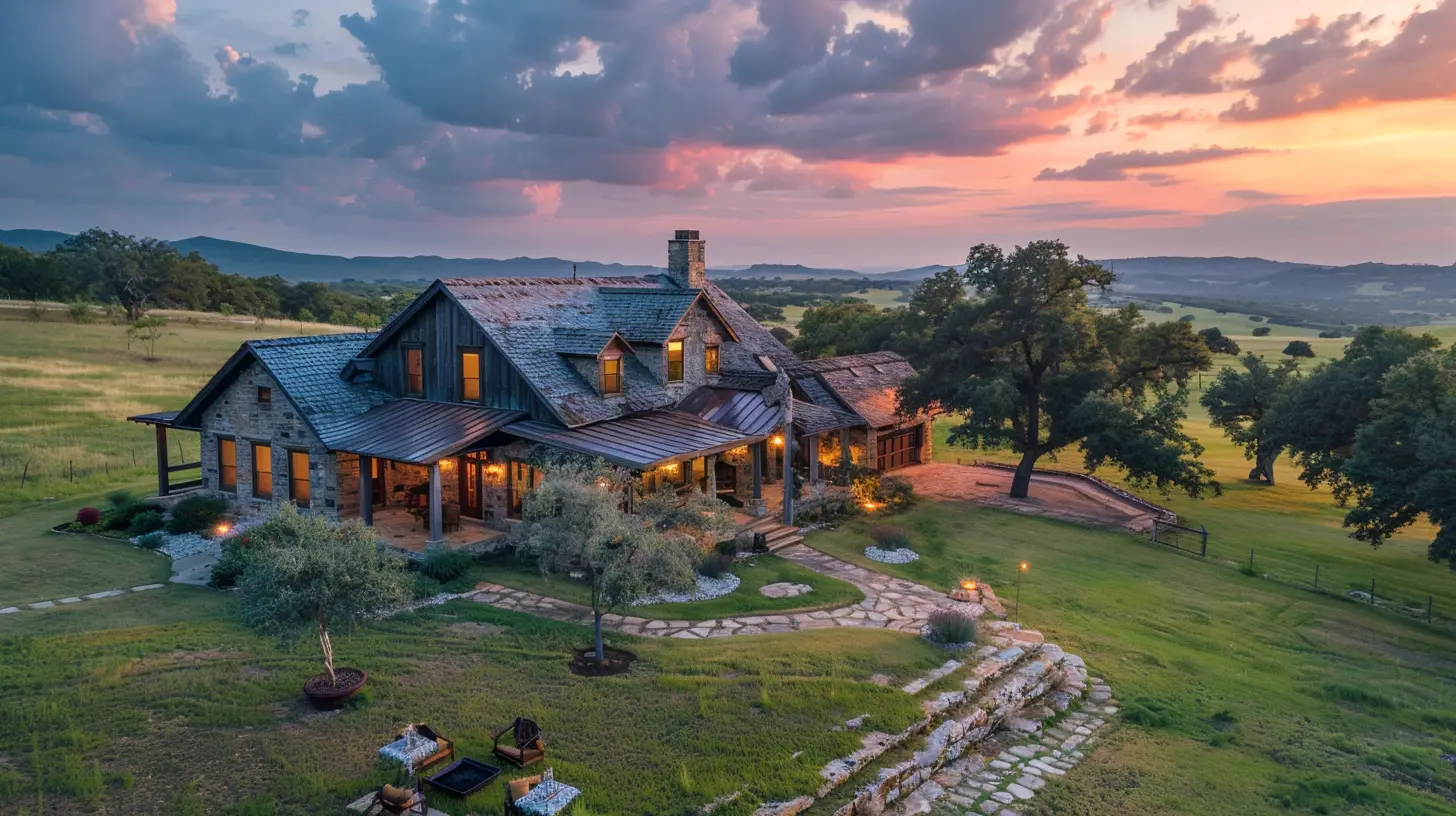
Hidden Costs and Common Pitfalls
So, you’ve found the perfect property. Time to move in, right? Not so fast! Keep an eye out for these potential deal-breakers.1. Environmental Concerns
Agricultural land can have hidden environmental issues like contaminated soil, water rights disputes, or flood risks. Always request environmental assessments before purchasing.2. Equipment and Maintenance Costs
Unlike buying a suburban home, farm and ranch properties often require equipment. Tractors, irrigation systems, livestock feed, and fencing repairs can add up fast.3. Property Taxes and Insurance
Rural property taxes can be lower than city taxes, but they vary widely by state and county. Likewise, farm insurance is necessary to cover potential liabilities, from weather damage to livestock issues.4. Wildlife and Pest Control
City folks may not think about this, but out in the countryside, nature is a force to be reckoned with. Deer can destroy crops overnight, coyotes can threaten livestock, and pests can wreak havoc on barns.Tips for First-Time Buyers
New to farm or ranch life? Here are some golden nuggets of wisdom:- Start Small – If you’re new to rural living, consider a hobby farm before diving into a full-scale operation.
- Talk to Locals – Neighbors and local farmers can give invaluable insights into the area, climate, and agriculture.
- Hire a Rural Real Estate Agent – Not all realtors understand farm and ranch transactions. Find one who does!
- Think Long-Term – Buy a property that fits your future goals, not just your current ones.
Is Farm and Ranch Life Right for You?
At the end of the day, farm and ranch ownership isn’t just a real estate investment—it’s a lifestyle. It takes patience, hard work, and a deep love of the land. But for those who are willing to put in the effort, the rewards are unmatched.So, are you ready to trade in city lights for starry nights? If so, happy land hunting!
all images in this post were generated using AI tools
Category:
Rural PropertiesAuthor:

Vincent Clayton
Discussion
rate this article
1 comments
Kian McClellan
Fantastic insights! This guide highlights the unique aspects of farm and ranch real estate that often go overlooked. I'm curious about the impact of sustainable farming practices on property value and the growing interest in rural living. Excited to explore these opportunities further! Keep up the great work!
September 22, 2025 at 4:13 AM

Vincent Clayton
Thank you for your kind words! I'm glad you found the guide helpful. Sustainable farming practices and the rising interest in rural living are indeed crucial factors influencing property values. Excited for you to explore these opportunities!

